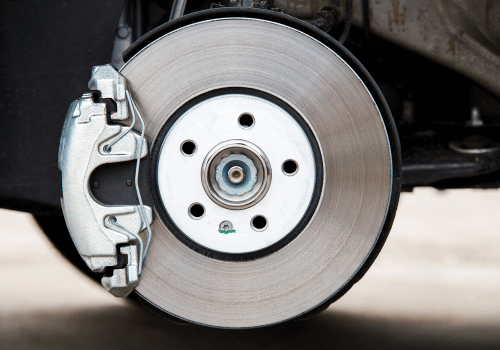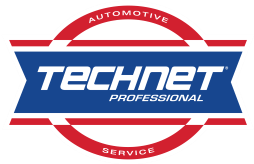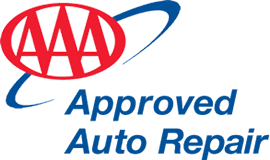Sustainable Car Maintenance
Making simple changes to the way you drive and maintain your vehicle can lessen your car’s impact on the environment. Choosing a mechanic dedicated to can make a real difference as well.
Here are 10 tips towards a more eco-friendly car:
Maintenance
- Keeping your vehicle running at peak performance will reduce emissions, increase performance, extend its life, and save you money. Regular oil and filter changes are a big part of this maintenance as well as following factory recommended guidelines. When cleaning your car, using a commercial car wash can reduce water consumption considerably, and keep oil and gasoline out of the storm drains.
- Keeping your vehicle running at peak performance will reduce emissions, increase performance, extend its life, and save you money. Regular oil and filter changes are a big part of this maintenance as well as following factory recommended guidelines. When cleaning your car, using a commercial car wash can reduce water consumption considerably, and keep oil and gasoline out of the storm drains.
Acceleration and Speed
- Did you know that you can save money and help the environment by changing your driving habits? Aggressive driving (speeding, rapid acceleration and braking) can lower your gas mileage by up to 33% and may also raise pollutant emissions. This type of driving can also cause additional wear on your engine, tires, brakes and transmission requiring earlier replacement.
Studies show that fuel economy peaks at about 50-55 miles per hour. Above 60 mph it begins to drop dramatically and you can estimate a 5% loss in fuel efficiency for every additional 10 mph. If you are driving on a fairly flat road, using your cruise control to maintain a constant speed will also increase your MPG.
- Did you know that you can save money and help the environment by changing your driving habits? Aggressive driving (speeding, rapid acceleration and braking) can lower your gas mileage by up to 33% and may also raise pollutant emissions. This type of driving can also cause additional wear on your engine, tires, brakes and transmission requiring earlier replacement.
Studies show that fuel economy peaks at about 50-55 miles per hour. Above 60 mph it begins to drop dramatically and you can estimate a 5% loss in fuel efficiency for every additional 10 mph. If you are driving on a fairly flat road, using your cruise control to maintain a constant speed will also increase your MPG.
Recycle Used Engine Fluids, Batteries or Car Parts
- Most engine fluids, batteries, and many car parts can now be recycled, or remanufactured and reused. If you need help finding out how to properly dispose of an item, call your local government waste management agency or visit Earth911. Each year, in honor of Earth Day, AAA offers free car battery recycling. Find out more here.
- Most engine fluids, batteries, and many car parts can now be recycled, or remanufactured and reused. If you need help finding out how to properly dispose of an item, call your local government waste management agency or visit Earth911. Each year, in honor of Earth Day, AAA offers free car battery recycling. Find out more here.
Reduce drag and weight
- When not in use, remove extra items attached to your vehicle that create drag, such as ski racks and cargo carriers. By limiting carrying unnecessary items in your car, you can reduce car weight and improve gas mileage. Every 100 lbs of extra weight reduces your mpg by 1-2%.
- When not in use, remove extra items attached to your vehicle that create drag, such as ski racks and cargo carriers. By limiting carrying unnecessary items in your car, you can reduce car weight and improve gas mileage. Every 100 lbs of extra weight reduces your mpg by 1-2%.
Tires
- Check the air pressure in your car’s tires monthly; under inflated tires require the engine to work harder and use more fuel to maintain a given speed. Also, make sure the car is in alignment, as unaligned tires wear out faster. When replacing tires, make sure the auto shop or tire store recycles the old ones in an environmentally friendly way.
- Check the air pressure in your car’s tires monthly; under inflated tires require the engine to work harder and use more fuel to maintain a given speed. Also, make sure the car is in alignment, as unaligned tires wear out faster. When replacing tires, make sure the auto shop or tire store recycles the old ones in an environmentally friendly way.
Tighten or Fix the Gas Cap
- Tighten the gas cap after every fill-up until you hear it click. A loose, cracked or missing gas cap lowers gas mileage and emits harmful emissions.
- Tighten the gas cap after every fill-up until you hear it click. A loose, cracked or missing gas cap lowers gas mileage and emits harmful emissions.
Use Air Conditioning Wisely
- Try rolling your windows down instead of using your A/C while driving around town. If you need some cool air, consider using you’re A/C in short bursts and re-circulate this cool air. At higher speeds, use your A/C as the extra drag caused by your open windows actually uses more fuel.
- Try rolling your windows down instead of using your A/C while driving around town. If you need some cool air, consider using you’re A/C in short bursts and re-circulate this cool air. At higher speeds, use your A/C as the extra drag caused by your open windows actually uses more fuel.
Limit Idling
- Idling for more than 10 seconds uses more gas and causes more pollution than simply restarting your engine.
- Idling for more than 10 seconds uses more gas and causes more pollution than simply restarting your engine.
Reduce Car Use
- Consolidate errands to eliminate unnecessary driving and plan out your trip and route before you leave. According to the United States Transportation Bureau a whopping forty-five percent of daily car trips are for shopping and errands. If you get lost, don’t be embarrassed about asking for directions. Think of all the gas and time you will be saving. Consider joining a car sharing program or carpool.
- Consolidate errands to eliminate unnecessary driving and plan out your trip and route before you leave. According to the United States Transportation Bureau a whopping forty-five percent of daily car trips are for shopping and errands. If you get lost, don’t be embarrassed about asking for directions. Think of all the gas and time you will be saving. Consider joining a car sharing program or carpool.
Choose a Sustainable Auto Shop
- When choosing a mechanic look for one who is dedicated to sustainable practices and participates in general business and automotive specific recycling. A sustainable auto shop is dedicated to reducing solid waste by reducing and recycling, implementing energy and water saving practices, and being actively engaged in pollution prevention.
- Be leery of any shop promising huge energy savings through your purchase of expensive specialty environmental products and services. Do your own homework to determine if these products and services actually deliver the savings that they promise. Some might actually damage your car.
- When choosing a mechanic look for one who is dedicated to sustainable practices and participates in general business and automotive specific recycling. A sustainable auto shop is dedicated to reducing solid waste by reducing and recycling, implementing energy and water saving practices, and being actively engaged in pollution prevention.
- Be leery of any shop promising huge energy savings through your purchase of expensive specialty environmental products and services. Do your own homework to determine if these products and services actually deliver the savings that they promise. Some might actually damage your car.
Share this article








